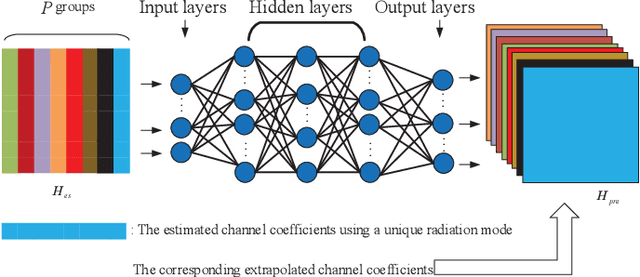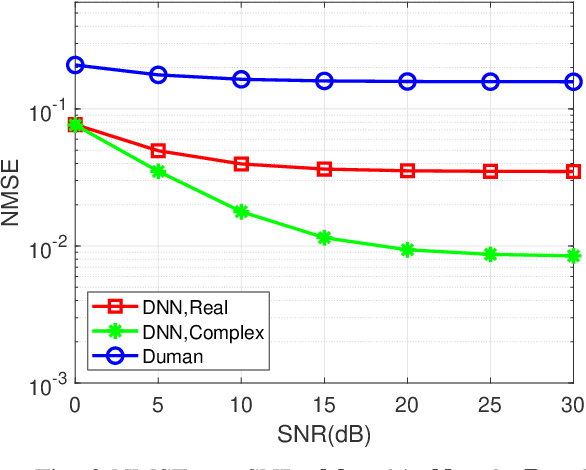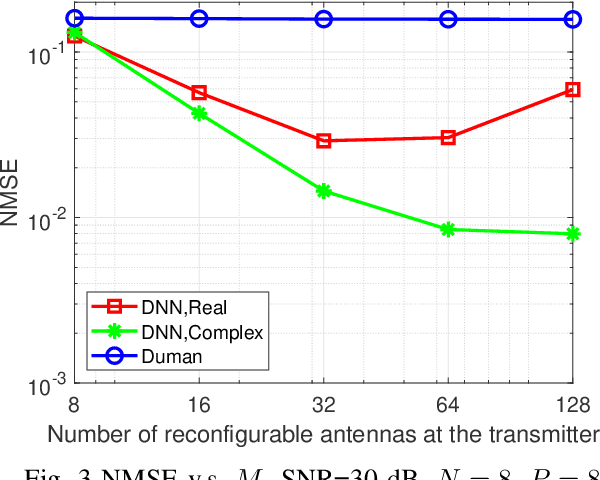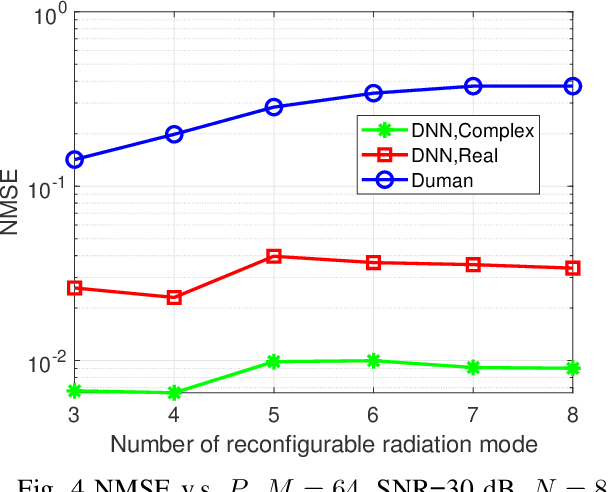Mu Liang
A New Solution for MU-MISO Symbol-Level Precoding: Extrapolation and Deep Unfolding
May 26, 2024Abstract:Constructive interference (CI) precoding, which converts the harmful multi-user interference into beneficial signals, is a promising and efficient interference management scheme in multi-antenna communication systems. However, CI-based symbol-level precoding (SLP) experiences high computational complexity as the number of symbol slots increases within a transmission block, rendering it unaffordable in practical communication systems. In this paper, we propose a symbol-level extrapolation (SLE) strategy to extrapolate the precoding matrix by leveraging the relationship between different symbol slots within in a transmission block, during which the channel state information (CSI) remains constant, where we design a closed-form iterative algorithm based on SLE for both PSK and QAM modulation. In order to further reduce the computational complexity, a sub-optimal closed-form solution based on SLE is further developed for PSK and QAM, respectively. Moreover, we design an unsupervised SLE-based neural network (SLE-Net) to unfold the proposed iterative algorithm, which helps enhance the interpretability of the neural network. By carefully designing the loss function of the SLE-Net, the time-complexity of the network can be reduced effectively. Extensive simulation results illustrate that the proposed algorithms can dramatically reduce the computational complexity and time complexity with only marginal performance loss, compared with the conventional SLP design methods.
Deep Learning-Based Channel Extrapolation for Pattern Reconfigurable Massive MIMO
Mar 08, 2023



Abstract:Antennas that can dynamically change the operation state exhibit excellent adaptivity and flexibility over traditional antennas, and MIMO arrays that consist of Multifunctional and reconfigurable antennas (MRAs) are foreseen as one promising solution towards future Holographic MIMO. Specifically, in pattern reconfigurable MIMO (PR-MIMO) communication systems, accurate acquisition of channel state information (CSI) of all the radiation modes is a challenging task, because using conventional pilot-based channel estimation techniques in PR-MIMO systems incurs overwhelming pilot overheads. In this letter, we leverage deep learning methods to design a PR neural network, which can use the estimated CSI for one radiation mode to infer CSIs for the other radiation modes. In order to reduce the pilot overheads, we propose a new channel estimation method specially for PR-MIMO systems which divides the transmit antennas of PR-MIMO into groups, where antennas in different groups employ different radiation modes. Comparing with conventional full connected deep neural networks (FNN), the PR neural network which uses complex weight coefficients can work directly in the complex domain. Experiment results show that the proposed channel extrapolation method offers significant performance gains in terms of prediction accuracy over benchmark schemes.
 Add to Chrome
Add to Chrome Add to Firefox
Add to Firefox Add to Edge
Add to Edge